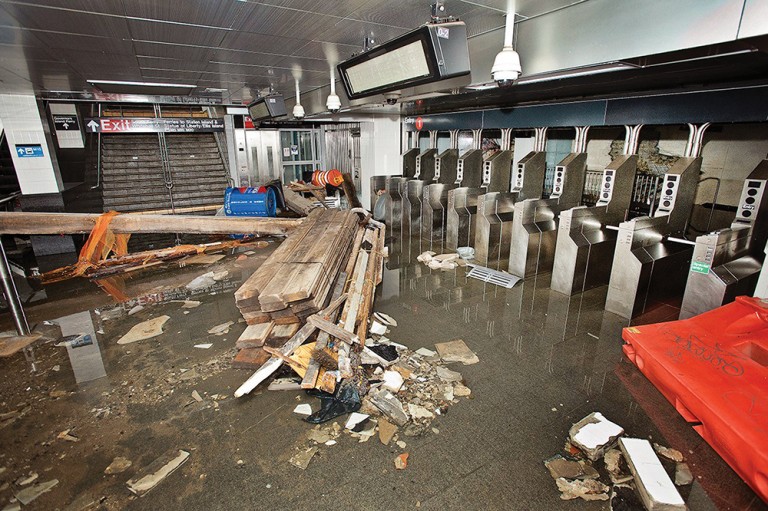By Forum Staff
Governor Kathy Hochul on Thursday announced that the Metropolitan Transportation Authority unveiled its Climate Resilience Roadmap, a framework to fortify the transit system against the impacts of climate change.
Developed in response to the demonstrated and urgent need to address climate-related threats, the roadmap underscores the MTA’s commitment to ensure reliability and safety in the transit system for generations of New Yorkers to come. The Climate Resilience Roadmap is comprised of a Climate Vulnerability Assessment and 10 core climate resilience goals targeted to address the magnitude of climate threats facing MTA infrastructure. Importantly, it includes a multi-pronged implementation framework consisting of capital plan integration, resilient design practices, proactive operating actions and better coordination between partner agencies.
Key strategies and actions in the Resilience Roadmap include defending the subway system from flooding, reducing coastal and rainfall flooding on Metro-North Railroad and Long Island Rail Road and protecting infrastructure from extreme heat. The capital costs associated with this work are estimated to be as much as $6 billion over the next decade.
Necessary interventions to safeguard the transit system include:
- Shielding subways from torrential rain by installing mitigations like raised steps and elevated street vents to prevent stormwater from entering the subway system.
- Investing in subway drainage and pumping equipment to remove stormwater that does enter the system.
- Protecting subway yards and bus depots by elevating sensitive equipment above anticipated flood depths in areas that must remain operational during weather-related emergencies.
- Addressing heat impacts on bridges by continuing existing efforts to protect metallic components from expansion due to prolonged heat exposure.
- Advancing proactive measures to reduce the impacts of monthly tidal floods and rain on regional railroad infrastructure exacerbated by climate change-induced sea level rise.
The Climate Resilience Roadmap follows the release of the 20-Year Needs Assessment in October 2023, the most rigorous and transparent assessment of the MTA system to date, outlining the MTA’s region’s needs for the next generation. It provides a blueprint to strengthen and expand the system, while improving reliability and resilience.
“Transit is the antidote to climate change, which is why we have to preserve and improve New York’s amazing subway, bus and commuter rail systems,” MTA Chairman and CEO Janno Lieber said. “But our transit system is still vulnerable to the effects of climate change, so we need to execute on this visionary resiliency plan, which has been designed to ensure the reliability and safety of New York’s transit system for years to come.”
City Council Committee on Transportation and Infrastructure Chairwoman Selvena N. Brooks-Powers (D-Far Rockaway) added, “Unfortunately, coastal communities across New York City are no strangers to the growing damage and disruption of flooding throughout the city’s roadways and subway system. All New Yorkers are impacted when our transit systems fail to measure up. The Governor’s Climate Resilience Roadmap creates a strategic framework to codify and protect the most vulnerable pieces of infrastructure against climate change to ensure our city’s transit system works well for all our communities. I look forward to seeing this project move forward.”

